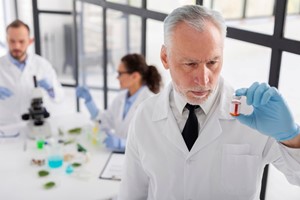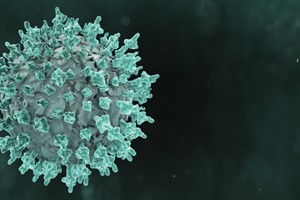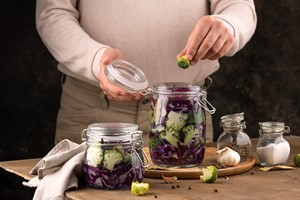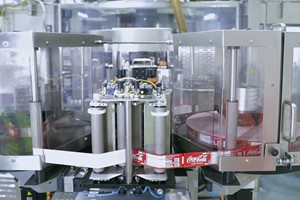The Challenge of Food Spoilage
Food spoilage poses a dual threat to both the quality of our meals and human health. To combat microbial contamination, traditional chemical preservatives have been employed, but concerns about their adverse effects have prompted a search for natural alternatives.
The Nisin Solution: Harnessing Nature's Antibacterial Peptide
In a recent study, scientists explored the potential of nisin, a natural antimicrobial peptide produced by lactic acid bacteria, as a safer alternative for food preservation. Unlike some chemical preservatives, nisin demonstrates limited side effects on human health, making it a promising candidate for maintaining food freshness.
Transforming Carrots: A Novel Approach to Natural Preservation
To test the efficacy of nisin as a food preservative, researchers focused on introducing the nisin gene from Lactococcus lactis into transgenic carrot plants. Carrots were chosen for their ubiquity in various prepared foods, with the hypothesis that expressing nisin in these plants could serve as a natural preservative, reducing reliance on harmful artificial additives.
The study involved obtaining the nisin gene sequence from the National Center for Biotechnology Information (NCBI) and cloning it into the plasmid pBI121. Through a series of transformations, including E. coli and Agrobacterium, transgenic carrot plants were produced. Crucial to success was the optimization of the inoculum concentration, containing Agrobacterium, cefotaxime, and kanamycin antibiotics, ensuring optimal transformation rates.
Validating Success: Confirming Nisin Expression in Transgenic Carrot Plants
Assays such as RT-PCR, DNA dot blot, and ELISA were employed to confirm the successful expression of the nisin gene in transgenic carrot plants. These tests provided concrete evidence of the presence and activity of the nisin peptide in the plant.
Battling Bacteria: Assessing Nisin's Antibacterial Properties
The Agar Overlay assay demonstrated that nisin extracted from transgenic carrot leaves effectively inhibited the growth of both gram-positive (Staphylococcus aureus) and gram-negative (Escherichia coli) bacteria. The absence of antibacterial inhibition in non-transgenic plants highlighted the specific contribution of the introduced nisin gene.
Stability and Application: Nisin as a Natural Preservative for Juices
Experiments revealed that nisin extracted from transgenic carrot leaves remained stable in juices, controlling bacterial growth up to 106 colony-forming units (CFU)/ml. This finding suggests that nisin could serve as a natural preservative for fruit juices, offering a safer alternative to chemical additives.
Ensuring Sustainability: Evaluating Genetic Stability in Transgenic Carrot Plants
The study also assessed the genetic stability of transgenic carrot plants, using Inter Simple Sequence Repeat (ISSR) primers. Results indicated high genetic stability between the mother plant and the plant regenerated by somatic embryogenesis, ensuring the reliability and sustainability of the transgenic approach.
Nisin Paves the Way for Safer, Sustainable Food Preservation
In conclusion, this study showcases the potential of nisin as a natural preservative in food. The recombinant protein demonstrated its ability to inhibit microbial pathogens in juices without compromising taste or color, offering a promising avenue for the development of safer and more sustainable food preservation methods.
nature.com














